On this page we will occasionally highlight recently published work which might be of interest to users of this website. Doing so does not endorse the opinions of the authors.
Jennifer L. Morgan, Reckoning with Slavery. Gender, Kinship, and Capitalism in the Early Black Atlantic (Duke University Press, 2021).

In Reckoning with Slavery Jennifer L. Morgan draws on the lived experiences of enslaved African women in the sixteenth and seventeenth centuries to reveal the contours of early modern notions of trade, race, and commodification in the Black Atlantic. From capture to transport to sale to childbirth, these women were demographically counted as commodities during the Middle Passage, vulnerable to rape, separated from their kin at slave markets, and subject to laws that enslaved their children upon birth. In this way, they were central to the binding of reproductive labor with kinship, racial hierarchy, and the economics of slavery … Morgan demonstrates that the development of Western notions of value and race occurred simultaneously. In so doing, she illustrates how racial capitalism denied the enslaved their kinship and affective ties while simultaneously relying on kinship to reproduce and enforce slavery through enslaved female bodies.
Further details are at Duke University Press.
Alex Renton, Blood Legacy. Reckoning With a Family’s Story of Slavery (Canongate Books, 2021).

Through the story of his own family’s history as slave and plantation owners, Alex Renton looks at how we owe it to the present to understand the legacy of the past. Blood Legacy explores what inheritance – political, economic, moral and spiritual – has been passed to the descendants of the slave owners and the descendants of the enslaved. He also asks, crucially, how the former – himself among them – can begin to make reparations for the past.
Further details are at Canongate Books.
Diana Paton and Matthew J. Smith (eds), The Jamaica Reader. History, Culture, Politics (Duke University Press, June 2021).
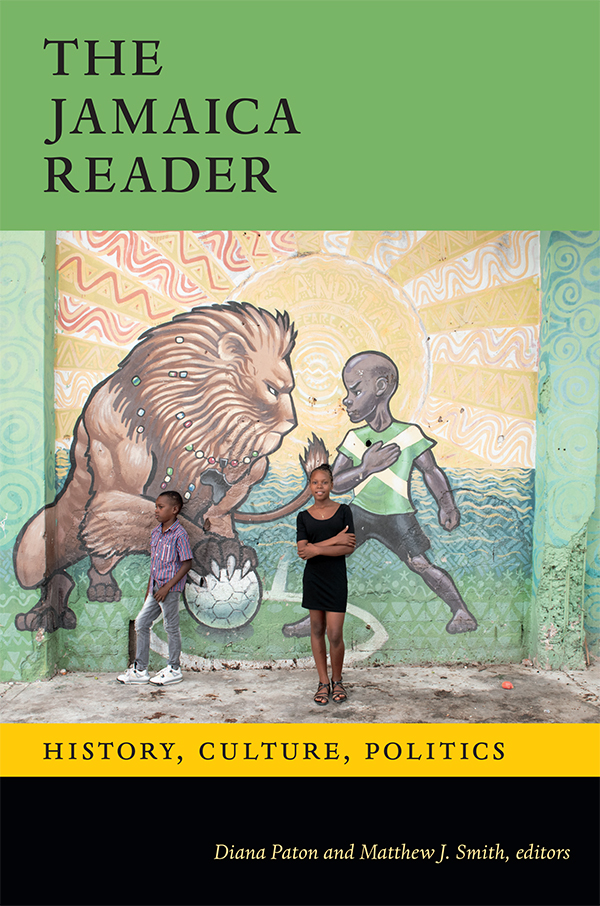
The Jamaica Reader presents a panoramic history of the country, from its precontact indigenous origins to the present. Combining more than one hundred classic and lesser-known texts that include journalism, lyrics, memoir, and poetry, the Reader showcases myriad voices from over the centuries: the earliest published black writer in the English-speaking world; contemporary dancehall artists; Marcus Garvey; and anonymous migrant workers. It illuminates the complexities of Jamaica’s past.
Further details are at Duke University Press.
Alan Lester, Kate Boehme and Peter Mitchell, Ruling the World. Freedom, Civilisation and Liberalism in the Nineteenth-Century British Empire (Cambridge University Press, 2021)

Ruling the World tells the story of how the largest and most diverse empire in history was governed, everywhere and all at once. Focusing on some of the most tumultuous years of Queen Victoria’s reign, Alan Lester, Kate Boehme and Peter Mitchell adopt an entirely new perspective to explain how the men in charge of the British Empire sought to manage simultaneous events across the globe. Using case studies, including Canada, South Africa, the Caribbean, Australia, India and Afghanistan, they reveal how the empire represented a complex series of trade-offs between Parliament’s, colonial governors’, colonists’ and colonised peoples’ agendas. They also highlight the compromises that these men made as they adapted their ideals of freedom, civilisation and liberalism to the realities of an empire imposed through violence and governed in the interests of Britons.
Further details are at Cambridge University Press.
Christine Walker, Jamaica Ladies. Female Slaveholders and the Creation of Britain’s Atlantic Empire (Chapel Hill, Omohundro Institute of Early American History and Culture and the University of North Carolina Press, 2020).

Jamaica Ladies is the first systematic study of the free and freed women of European, Euro-African, and African descent who perpetuated chattel slavery and reaped its profits in the British Empire. Their actions helped transform Jamaica into the wealthiest slaveholding colony in the Anglo-Atlantic world. Starting in the 1670s, a surprisingly large and diverse group of women helped secure English control of Jamaica and, crucially, aided its developing and expanding slave labor regime by acquiring enslaved men, women, and children to protect their own tenuous claims to status and independence.
Further details are at University of North Carolina Press.
Vincent Brown, Tacky's Revolt. The Story of an Atlantic Slave War (Cambridge, Mass. & London, Harvard University Press, 2020).

Tacky’s Revolt in Jamaica in 1760 was the largest slave revolt in the 18th century British Atlantic world. Vincent Brown explores the contours and significance of the revolt arguing that it was an uprising that laid bare the interconnectedness of Europe, Africa, and America, shook the foundations of empire, and reshaped ideas of race and popular belonging.
Further details are at Harvard University Press.
Kathleen Monteith, Plantation Coffee in Jamaica, 1790-1848 (Kingston, University of the West Indies Press, 2019).
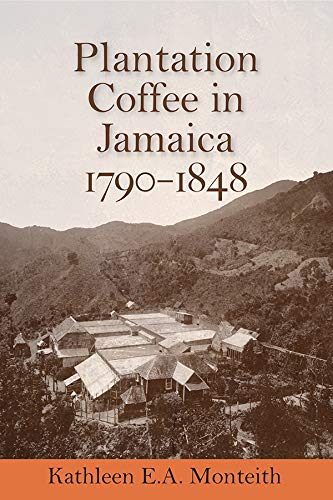
Plantation Coffee in Jamaica, 1790–1848 is the first comprehensive history of the Jamaican coffee industry, covering a period of rapid expansion and decline. Examining the structure and performance of the industry, the book aims to demonstrate the extent to which it contributed to the diversity of the Jamaican economy and society in the period.
Further details are at UWI Press.
Julius S. Scott, The Common Wind. Afro-American Currents in the Age of the Haitian Revolution (Verso, 2019).
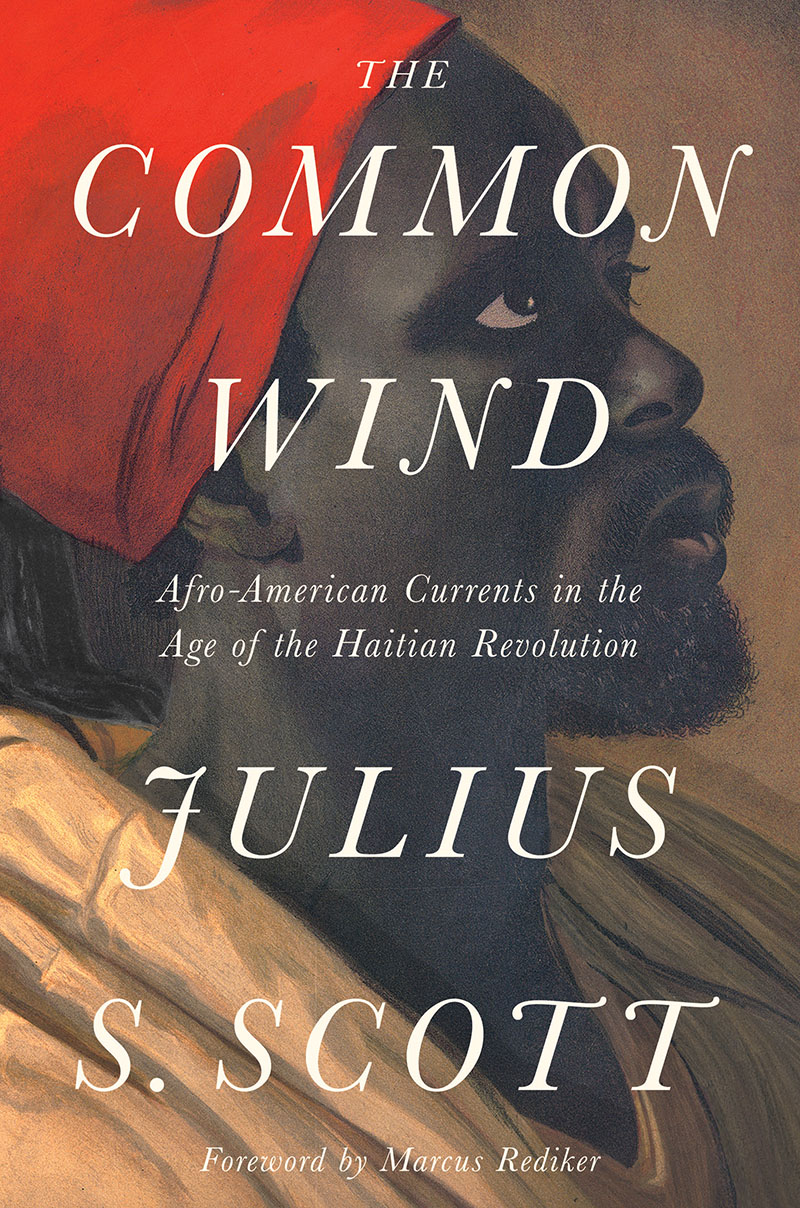
The Common Wind is a an account of the intercontinental networks that tied together the free and enslaved masses of the New World. The book tracks the colliding worlds of buccaneers, military deserters, and maroon communards from Venezuela to Virginia. Scott records the transmission of contagious mutinies and insurrections in unparalleled detail, providing readers with an intellectual history of the enslaved. Though written in 1987 this is the first publication of this important book.
Further details are at Verso.
Katie Donington, The Bonds of Family. Slavery, commerce and culture in the British Atlantic world (Manchester University Press, 2019)
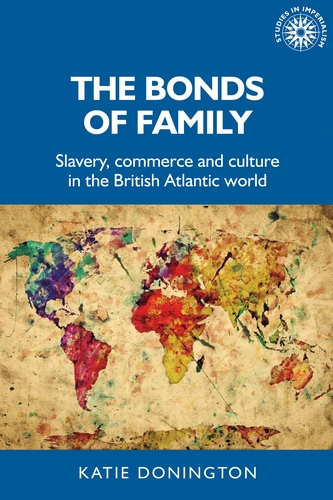
“Moving between Britain and Jamaica this book reconstructs the world of commerce, consumption and cultivation sustained through an extended engagement with the business of slavery. Transatlantic slavery was both shaping of and shaped by the dynamic networks of family that established Britain's Caribbean empire. Tracing the activities of a single extended family - the Hibberts - this book explores how slavery impacted on the social, cultural, economic and political landscape of Britain. It is a history of trade, colonisation, enrichment and the tangled web of relations that gave meaning to the transatlantic world. The Hibberts's trans-generational story imbricates the personal and the political, the private and the public, the local and the global. It is both the intimate narrative of a family and an analytical frame through which to explore Britain's history and legacies of slavery.”
Further details are at Manchester University Press.
Sarah Thomas, Witnessing Slavery. Art and Travel in the Age of Abolition (Yale University Press, 2019)
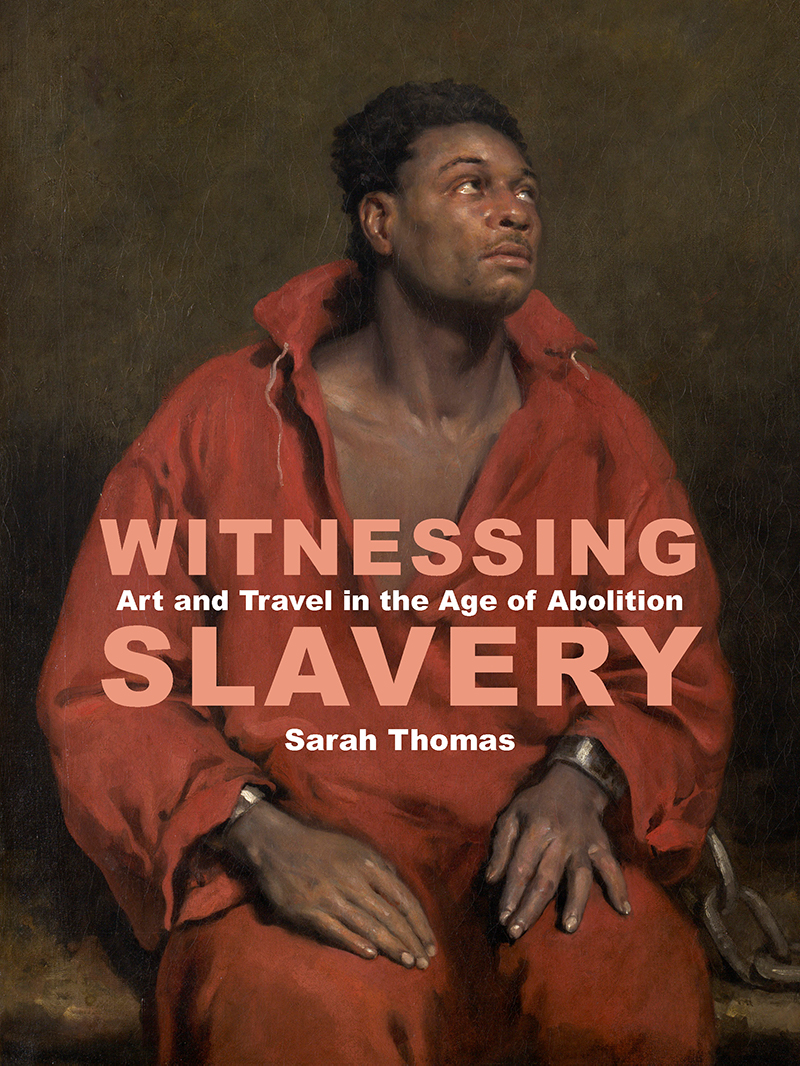
"Gathering together over 160 paintings, watercolors, drawings, and prints, this book offers an unprecedented examination of the shifting iconography of slavery in British and European art between 1760 and 1840. In addition to considering how the work of artists such as Agostino Brunias, James Hakewill, and Augustus Earle responded to abolitionist politics, Sarah Thomas examines the importance of the eyewitness account in endowing visual representations of transatlantic slavery with veracity. “Being there,” indeed, became significant not only because of the empirical opportunities to document slave life it afforded but also because the imagery of the eyewitness was more credible than sketches and paintings created by the “armchair traveler” at home. Full of original insights that cast a new light on these highly charged images, this volume reconsiders how slavery was depicted within a historical context in which truth was a deeply contested subject."
Further details are at Yale University Press.
Miles Ogborn, The Freedom of Speech. Talk and Slavery in the Anglo-Caribbean World (Chicago University Press, 2019)

"The institution of slavery has always depended on enforcing the boundaries between slaveholders and the enslaved. As historical geographer Miles Ogborn reveals in The Freedom of Speech, across the Anglo-Caribbean world the fundamental distinction between freedom and bondage relied upon the violent policing of the spoken word. Offering a compelling new lens on transatlantic slavery, this book gathers rich historical data from Barbados, Jamaica, and Britain to delve into the complex relationships between voice, slavery, and empire. From the most quotidian encounters to formal rules of what counted as evidence in court, the battleground of slavery lay in who could speak and under what conditions. But, as Ogborn shows through keen attention to both the traces of talk and the silences in the archives, if enslavement as a legal status could be made by words, it could be unmade by them as well. A deft interrogation of the duality of domination, The Freedom of Speech offers a rich interpretation of oral cultures that both supported and constantly threatened to undermine the slave system.
Further details are at University of Chicago Press.
Christer Petley, White Fury. A Jamaican Slaveholder and the Age of Revolution (Oxford University Press, 2018)

"The sugar planter Simon Taylor, who claimed ownership of over 2,248 enslaved people in Jamaica at the point of his death in 1813, was one of the wealthiest slaveholders ever to have lived in the British empire.
In White Fury, Christer Petley uses Taylor's rich and expressive letters to allow us an intimate glimpse into the aspirations and frustrations of a wealthy and powerful British slaveholder during the Age of Revolution. The letters provide a fascinating insight into the merciless machinery and unpredictable hazards of the Jamaican plantation world; into the ambitions of planters who used the great wealth they extracted from Jamaica to join the ranks of the British elite; and into the impact of wars, revolutions, and fierce political struggles that led, eventually, to the reform of the exploitative slave system that Taylor had helped build . . . and which he defended right up until the last weak scratches of his pen."
Further details are at Oxford University Press.
Daniel Livesay, Children of Uncertain Fortune. Mixed-Race Jamaicans in Britain and the Atlantic Family, 1733-1833 (Omohundro Institute of Early American History and Culture / University of North Carolina Press, 2018)

"By tracing the largely forgotten eighteenth-century migration of elite mixed-race individuals from Jamaica to Great Britain, Children of Uncertain Fortune reinterprets the evolution of British racial ideologies as a matter of negotiating family membership . . . Daniel Livesay is the first scholar to follow the hundreds of children born to white planters and Caribbean women of color who crossed the ocean for educational opportunities, professional apprenticeships, marriage prospects, or refuge from colonial prejudices."
Further details are at University of North Carolina Press.
Margot Finn and Kate Smith (eds), The East India Company at Home, 1757-1857 (UCL Press, 2018).
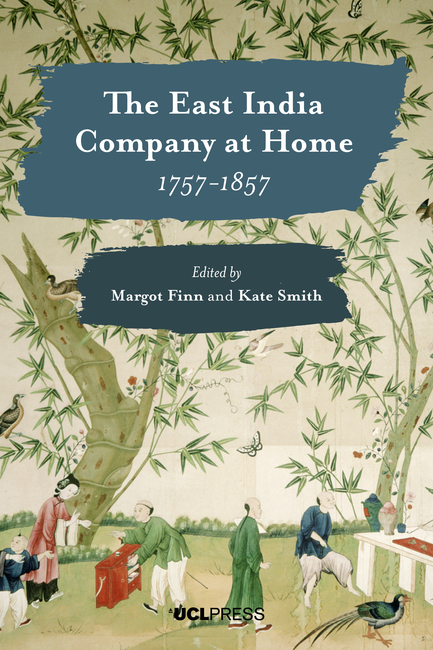
The essays in this collection explore how empire in Asia shaped British country houses, their interiors and the lives of their residents. It includes chapters from researchers based in a wide range of settings such as archives and libraries, museums, heritage organisations, the community of family historians and universities. It moves beyond conventional academic narratives and makes an important contribution to ongoing debates around how empire impacted Britain.
The whole book can be downloaded for free as a pdf file. See the UCL Press website page for details:
UCL Press.